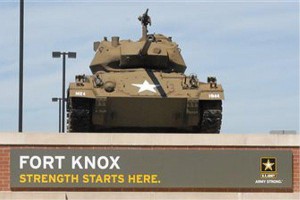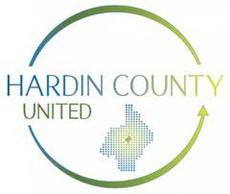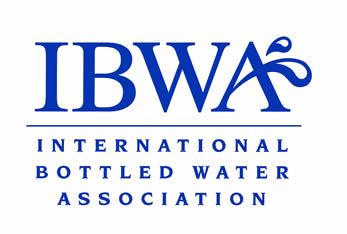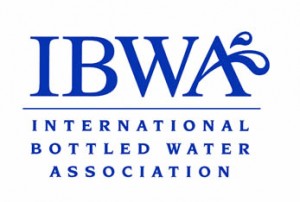Introduction
The Food with Wine Coalition (FWWC) is a non profit organization which was established by the Kentucky Grocers Association (now known as the Kentucky Grocers Association & the Kentucky Association of Convenience Stores) for the purpose of educating and informing Kentucky’s thought leaders about the benefits of revising existing state law to allow grocery stores to sell wine in wet and moist counties. At present, 34 states allow grocery stores to sell wine. Six of seven of Kentucky’s border states allow grocery stores to sell wine.
Lifestyles have changed and wine has become a healthy part of a balanced diet when consumed in moderation. Across Kentucky, consumers are asking grocery store managers to sell wine to pair with the food that they are purchasing for dinner. There are three compelling reasons why the law should be changed:
- Expands consumer choice and competition in the wine marketplace
- Supports Kentucky’s farm families by expanding the number of sales outlets for Kentucky-produced wine and increases the demand for Kentucky-grown grapes
- Adds much needed tax revenue to the coffers of the Commonwealth without raising taxes
The FWWC retained Luke Schmidt and L.B. Schmidt & Associates, LLC for the purpose of developing and directing the project.
Project Scope
As consultant to the FWWC, Luke Schmidt provided the following services to the Coalition:
- Designed project scope and established goals
- Managed the Coalition; scheduled meetings, established Agendas and conducted meetings and teleconferences
- Developed collateral support materials such as one-pagers, project brochure, project promotional video, Web site, etc.
- Distributed collateral materials
- Conducted outreach to key writers and editorial boards to all daily newspapers, key news talk radio stations and television stations; secured editorial support; served as the spokesperson for the Coalition; developed list of regional grocery industry spokespersons
- Developed PR campaign strategy with press releases, op-ed articles; solicit/secure talk radio, television and other media opportunities
- Started outreach to key local chambers of commerce, The Kentucky Chamber of Commerce and built support for the issue
- Developed and maintained the link with the agriculture community, the Kentucky Department of Agriculture and the Kentucky’s grape and wine industry
- Coordinated outreach to the Governor’s Office and Members of the General Assembly
- Coordinated legislation development and sponsorship
Project Results
The FWWC positioned itself to lead the discussion on this issue. Luke Schmidt led the development of various collateral materials which were used to support the Coalition’s position, including a new logo.
The Coalition developed a Web site which contains a wealth of information on the issue. In addition, Luke Schmidt led the development of the Coalition’s promotional video . The Coalition also produced a project brochure which was distributed to industry and legislative representatives.
The Coalition also produced a general one-pager, along with an economic impact one-pager, both of which were distributed to Members of the Kentucky General Assembly and were also distributed with press releases.
 As consultant to the Coalition, Luke Schmidt developed an extensive media distribution list and called on over 40 key media outlets throughout the Commonwealth (and adjacent markets in Illinois, Indiana, Missouri, Ohio and West Virginia) during two statewide media tours, including television stations, talk radio stations, NPR radio stations and all daily newspapers which resulted in hundreds of positive newspaper articles, radio and television news stories. (Many of the newspaper articles and television news reports can be viewed in the Media section on this Web site) Three newspapers endorsed the Coalition’s position. Press releases were issued as needed.
As consultant to the Coalition, Luke Schmidt developed an extensive media distribution list and called on over 40 key media outlets throughout the Commonwealth (and adjacent markets in Illinois, Indiana, Missouri, Ohio and West Virginia) during two statewide media tours, including television stations, talk radio stations, NPR radio stations and all daily newspapers which resulted in hundreds of positive newspaper articles, radio and television news stories. (Many of the newspaper articles and television news reports can be viewed in the Media section on this Web site) Three newspapers endorsed the Coalition’s position. Press releases were issued as needed.
Luke Schmidt called on key local Chambers of Commerce in the Commonwealth’s Top 10 markets. The Northern Kentucky Chamber of Commerce and the Bowling Green Area Chamber of Commerce endorsed the Coalition’s position.
The Coalition launched an initial statewide petition drive which included 110 grocery stores and which gathered 56,000 signatures. A follow-up online petition drive secured another 18,000 signatures. The petition drives were supported with unique in-store collateral pieces.
Summary
Luke Schmidt worked closely with a group of grocers which comprised the FWWC Steering Committee. The grocers provided invaluable support, insight and counsel. A true partnership was established. Yet, Members of the Kentucky General Assembly continued to focus exclusively on critical issues such as the Commonwealth’s severe budget shortfall, unfunded pension liabilities, etc., all the while avoiding the controversial issue. As such, the foundation to support legislation to allow grocery store wine sales was put into place; however, the environment needed to pass the controversial legislation remained challenging at best.
The FWWC elected to take this issue to court, challenging the constitutionality of the law. In 2012, U.S. District Court Judge John Heyburn ruled in Louisville that Kentucky’s existing law which outlawed the sale of wine in grocery stores was illegal and further stated that grocery stores should be allowed to sell wine and distilled spirits. The ruling was appealed by the liquor store industry and the issue is currently being reviewed by the U.S. Fifth Circuit Court of Appeals in Cincinnati.
###













![100_3122[2]](/wp-content/uploads/2013/06/100_31222-300x224.jpg)


